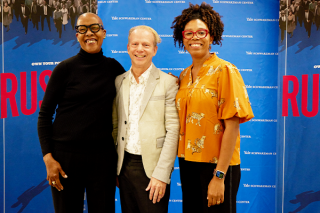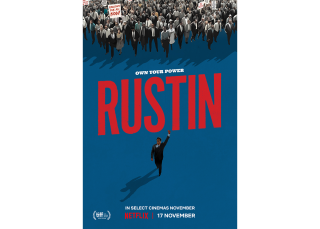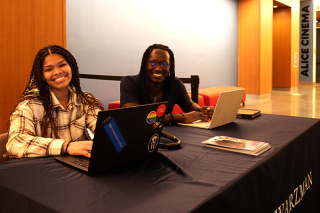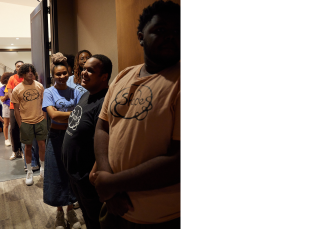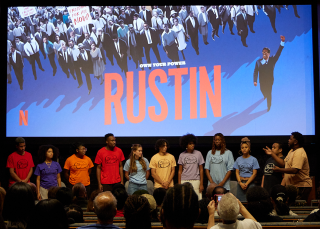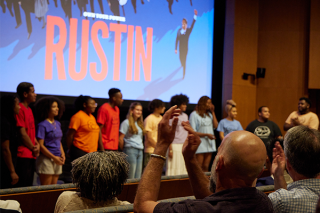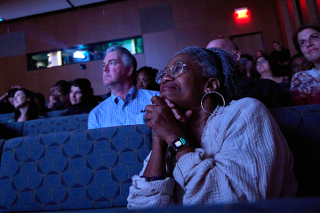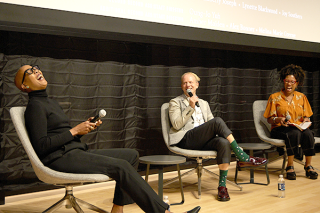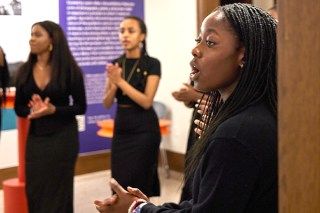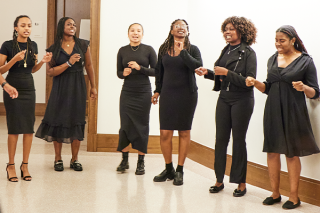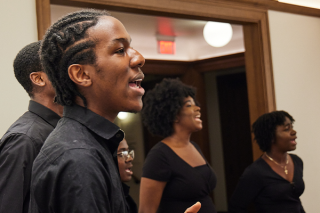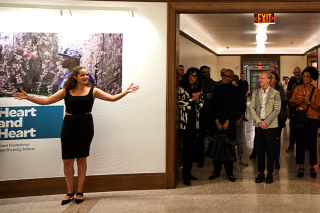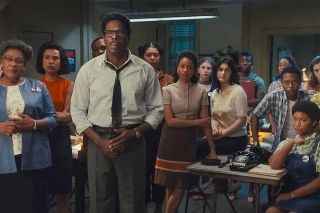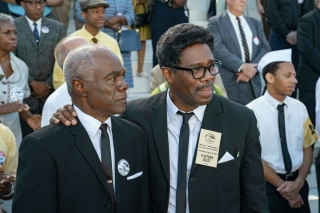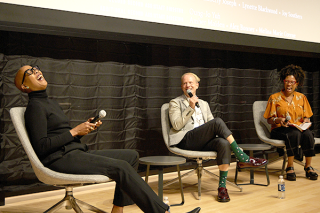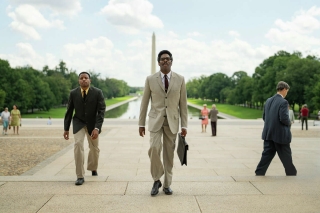Cohen’s answer to the call takes full force in Rustin, which tells the long-forgotten story of Bayard Rustin, a civil rights activist who was integral to the movement and the architect of the 1963 March on Washington. The film is co-produced by Cohen and Higher Ground's Tonia Davis and George C. Wolfe, and Barack Obama and Michelle Obama also serve as executive producers. Rustin is an expansive but also intimate portrayal of Rustin’s life, exploring his friendship with Martin Luther King, Jr., his orientation as a gay man in a time when homosexuality was often criminalized, and his nonviolent struggle for racial equality as a Black man in a deeply segregated America.
Yale Schwarzman Center held a pre-release screening of Rustin on Saturday, October 28 in the Humanities Quadrangle. The film was screened in two rooms to accommodate as many audience members as possible. Moviegoers were excited for the chance to see Rustin before its official release. Before the screening began, the audience was inspired by a musical performance from Shades of Yale, an undergraduate a cappella group that performs songs from the African diaspora and African American tradition. Then, the lights dimmed for an unforgettable experience.
Colman Domingo stars in the titular role as Bayard Rustin, and he is a delight to watch. He plays Rustin with such enthusiasm and depth, bringing to light how Rustin reconciled his identity as a Black gay man, and how other leaders in the civil rights movement, as well as opponents of the movement, used it against him. Rustin met Martin Luther King Jr. in 1956 when he visited Montgomery, Alabama and they discussed the application of nonviolence in mass protest and American racial politics. The film also stars Chris Rock as Roy Wilkins, leader of the NAACP; Glynn Turman as A. Philip Randolph, a labor leader and civil rights activist who founded the nation's first major Black labor union; and Aml Ameen as Martin Luther King Jr. Another highlight of this film is Rustin’s group of “angelic troublemakers”: young college students and activists that raise money, coordinate transportation, and secure all means necessary to make the hundreds of thousands of people descending on Washington a reality.
